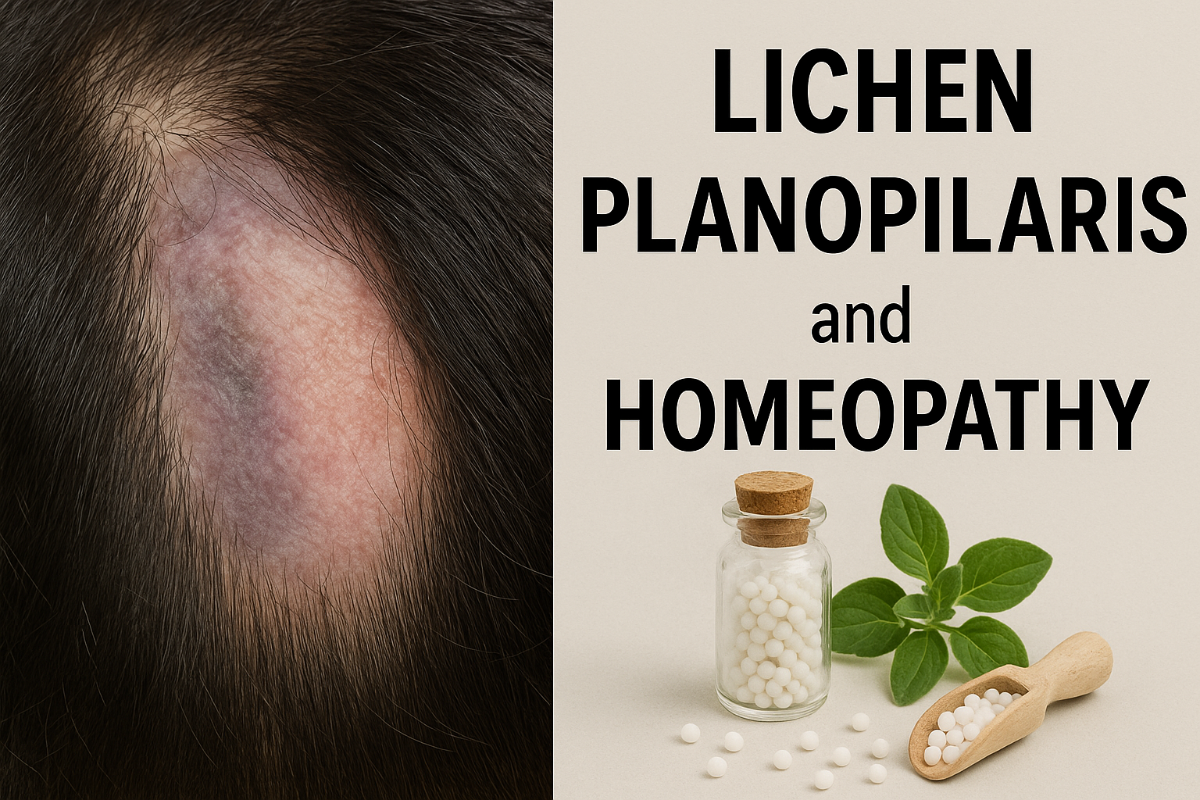
Lichen Planopilaris and Homeopathy: A Complementary Approach?
Living with lichen planopilaris (LPP) can be challenging both physically and emotionally. This uncommon inflammatory scalp condition, which leads to permanent hair loss, often leaves patients seeking various treatment options beyond conventional medicine. Today, we're exploring homeopathy as a potential complementary approach for those managing LPP.
Understanding Lichen Planopilaris
Lichen planopilaris is a form of scarring alopecia characterized by inflammation that destroys hair follicles. The condition typically presents with:
- Redness, scaling, and irritation of the scalp
- Small, rough, red-purple bumps around hair follicles
- Progressive and permanent hair loss
- Itching, burning, or pain in affected areas
Conventional treatments typically focus on reducing inflammation through topical or oral corticosteroids, immunosuppressants, and other medications. However, these treatments may come with side effects and varying degrees of effectiveness, prompting some patients to explore complementary approaches.
Homeopathy: Basic Principles
Homeopathy is based on the principle of "like cures like" and uses highly diluted substances to stimulate the body's natural healing processes. Founded in the late 18th century by Samuel Hahnemann, this holistic system treats the whole person rather than just the symptoms of disease.
Homeopathic remedies are individualized based on a person's specific symptoms, emotional state, and overall constitution. This personalized approach makes it difficult to recommend universal remedies for conditions like LPP.
Potential Homeopathic Approaches for LPP
While scientific evidence for homeopathy in treating LPP is limited, some practitioners suggest the following remedies might help address symptoms:
- Arsenicum album: May help with burning sensations, anxiety about health, and scalp conditions that worsen at night
- Graphites: Often recommended for crusty eruptions, particularly behind the ears and on the scalp
- Kali arsenicosum: Potentially beneficial for dry, scaly skin conditions with burning sensations
- Thuja occidentalis: Sometimes used for autoimmune conditions and skin eruptions
- Sulfur: Commonly suggested for itchy, burning skin conditions that worsen with heat
Important Considerations
If you're considering homeopathy for LPP, keep these points in mind:
- Consult healthcare professionals: Always discuss complementary treatments with your dermatologist or healthcare provider
- Integrated approach: Consider homeopathy as a complement to, not a replacement for, conventional medical treatment
- Qualified practitioners: Seek treatment from licensed, qualified homeopathic practitioners
- Individual response: Response to homeopathic treatments varies significantly among individuals
- Limited evidence: Scientific studies specifically examining homeopathy for LPP are scarce
Personal Experiences
Many patients report that stress exacerbates LPP symptoms. One potential benefit of homeopathic treatment is its holistic approach, which may help address emotional and psychological aspects of living with a chronic condition.
Some patients report that the consultation process itself—which typically involves detailed discussions about symptoms, lifestyle, and emotional well-being—provides therapeutic value by acknowledging the emotional impact of hair loss and chronic inflammation.
The Role of Diet and Lifestyle
Homeopathic treatment often includes recommendations for diet and lifestyle modifications that may benefit LPP patients:
- Anti-inflammatory diet rich in omega-3 fatty acids
- Avoiding potential irritants in hair products
- Stress reduction techniques
- Gentle hair care practices
These modifications align with general recommendations for LPP management and may complement both conventional and homeopathic treatments.
Conclusion
While homeopathy offers an individualized, holistic approach that appeals to many people with chronic conditions like lichen planopilaris, it's important to maintain realistic expectations. The scientific evidence supporting homeopathy for LPP specifically is limited, but some patients find value in its whole-person approach.
If you're struggling with LPP and considering homeopathy, approach it as one component of a comprehensive treatment plan developed in consultation with healthcare providers knowledgeable about both conventional and complementary medicine.
Disclaimer: This blog post is for informational purposes only and does not constitute medical advice. Always consult qualified healthcare professionals regarding any health concerns or before starting new treatments.
Conclusion
LPP may be a persistent issue, but with a holistic approach like homeopathy, you can target not only the symptoms but also the underlying imbalances in your body. Combined with a healthy lifestyle and good hair hygiene, homeopathy can be a powerful ally in your journey to a flake-free scalp.
Note: This blog provides general information and is not intended as medical
advice. Always consult healthcare professionals before starting any new treatment
approach for LPP or any other health condition
Call to Action:
Want to BE FREE FROM LPP ? Schedule a consultation today
at Sahitya Saraswati Holistic Homeopathic Clinic!
#Chronic Illness #Homeopathy #Holistic Healing